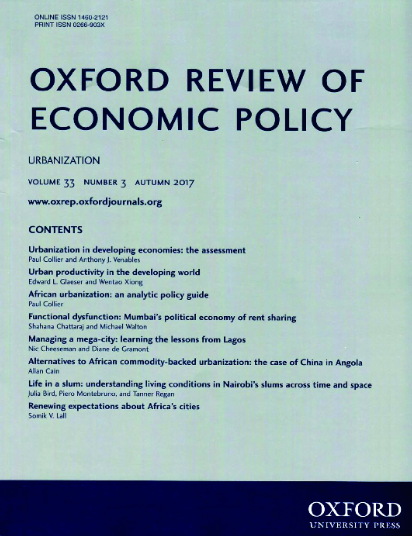Promoting sustainable investment through financial architecture reform
IF 1.8
2区 经济学
Q2 ECONOMICS
引用次数: 1
Abstract
The global financial architecture is struggling to facilitate the sustainable investment needed to address climate change. Some argue that if the Basel III global capital rules treated environmentally friendly assets as being safer forms of capital, banks would be incentivized to hold more of these assets on their balance sheets and extend more green debt, promoting sustainable investment. This paper explores the possible impacts of this reform by combining firm-level environmental, social, and governance (ESG) data with a global general equilibrium model. It finds that the reform would result in a significant reallocation of capital, goods, and services across sectors and economies. It finds that while the reform could significantly increase investment, the investment is not necessarily sustainable and not all countries benefit from cooperation. The paper identifies a range of challenges that need to be overcome for these results to hold, including the reliability of ESG data, inconsistencies in taxonomies and methodologies, and further analysis confirming whether green firms are indeed safer borrowers. The paper argues that the G20 is well placed to address these challenges and outlines an agenda to achieve it.通过金融结构改革促进可持续投资
全球金融架构正在努力促进应对气候变化所需的可持续投资。一些人认为,如果巴塞尔协议III全球资本规则将环保资产视为更安全的资本形式,银行将被激励在资产负债表上持有更多此类资产,并延长更多绿色债务,促进可持续投资。本文将企业层面的环境、社会和治理(ESG)数据与全球一般均衡模型相结合,探讨了这一改革的可能影响。研究发现,改革将导致资本、商品和服务在各个部门和经济体之间的重大再分配。研究发现,虽然改革可以显著增加投资,但投资不一定是可持续的,并非所有国家都能从合作中受益。该论文确定了这些结果需要克服的一系列挑战,包括ESG数据的可靠性、分类和方法的不一致性,以及确认绿色公司是否确实是更安全的借款人的进一步分析。该文件认为,二十国集团完全有能力应对这些挑战,并概述了实现这一目标的议程。
本文章由计算机程序翻译,如有差异,请以英文原文为准。
求助全文
约1分钟内获得全文
求助全文
来源期刊

Oxford Review of Economic Policy
ECONOMICS-
CiteScore
12.50
自引率
1.50%
发文量
41
期刊介绍:
The Oxford Review of Economic Policy is a refereed journal which is published quarterly. Each issue concentrates on a current theme in economic policy, with a balance between macro- and microeconomics, and comprises an assessment and a number of articles. It gives a valuable appraisal of economic policies worldwide. While the analysis is challenging and at the forefront of current thinking, articles are presented in non-technical language to make them readily accessible to all readers. The Oxford Review is aimed at a wide audience including government, business and policy-makers, as well as academics and students. It is required reading for those who need to know where research is leading.
 求助内容:
求助内容: 应助结果提醒方式:
应助结果提醒方式:


